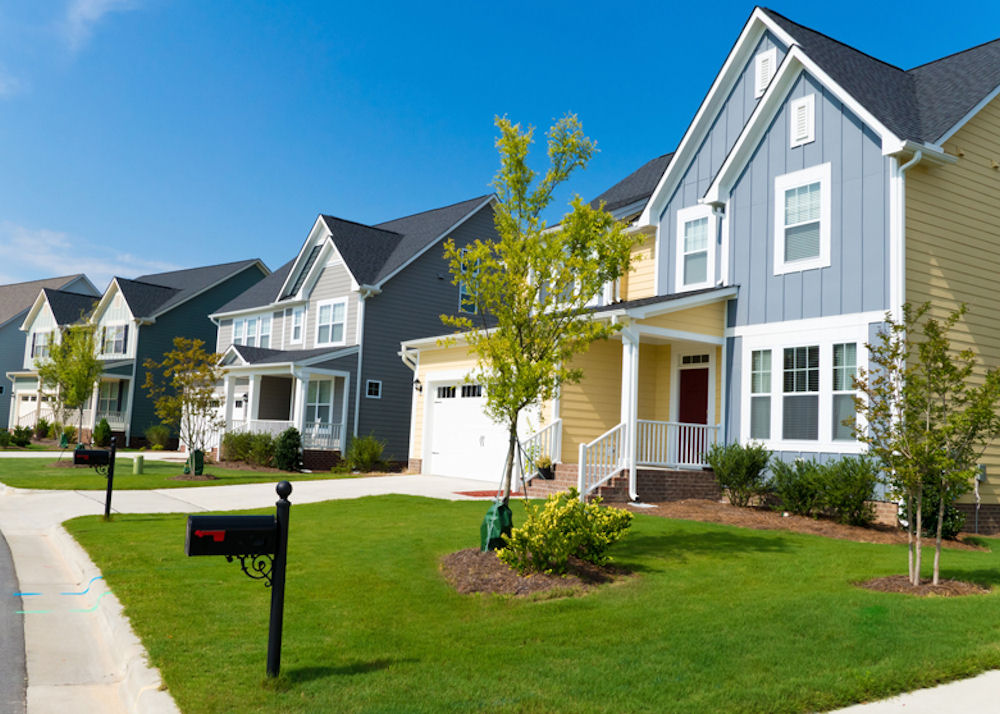Home flipping is the process of purchasing a home, making repairs and/or renovations, and then selling it for a profit. It can be an effective way to make money if done correctly as investors may receive considerable returns on their investments.
How to Start Flipping Houses
If you’re interested in how to start flipping houses, there are several steps you’ll need to take. First, you’ll need to gain knowledge about how the market works and how much homes will typically sell in your area. You should also familiarize yourself with local laws that may affect how the property can be used or developed. Next, you’ll need to find potential properties that have the potential to yield good ROI (Return On Investment). This involves research into current real estate trends in your area, as well as how many comparable homes have recently sold.
Once you’ve identified a suitable property, you’ll need to secure financing. Depending on how extensive the renovations that you plan to make are, you may need to calculate how much money it will take to complete the necessary work before listing the home for sale. After securing funding, it’s time to begin renovations and repairs. This can involve anything from simple cosmetic improvements like fresh paint and flooring or major updates such as plumbing and electrical work.
Once all of the renovations are finished, your job is done! You can then list the home for sale and receive any potential profit that you made after subtracting all costs associated with renovation, closing costs, and fees.
More About How to Get Into Flipping Houses
Getting into home flipping can be a great opportunity to make a profit and turn your knowledge of real estate into an investment. That said, it is important that you know how to start flipping houses in order to maximize the chances of coming out ahead. Understanding how much money you need, how long it will take, and how to properly assess the value of a home are all essential steps in getting started with house flipping. Making sure that you complete all necessary research before proceeding with any endeavor related to real estate is key to success. With the right information and some determination, anyone can get into flipping houses!
Benefits and Drawbacks of Flipping Houses

You should also pay attention to legalities when getting into house flipping. Researching local laws and staying updated on relevant regulations will help ensure that you don’t run into any compliance issues. Additionally, it’s important to remember that flipping houses is a business and should be treated as such.
Flipping houses can have several benefits, including the ability to earn extra income or start a new career. It takes capital to get started, but once an investor finds their footing in the market, they may find that their returns are higher than expected. On top of this, house flipping allows investors to invest in real estate with relatively low risk compared to other investments, like stocks or mutual funds.
However, there are also some drawbacks to consider when getting into house flipping. First off, investing in real estate requires both time and money. It can take a lot of research and legwork to find the right property, and then there are costs associated with doing repairs or renovations before listing it for sale. Additionally, there is always the risk that the house will sit on the market for too long or not sell at all.
Despite these challenges, flipping houses can be a lucrative business opportunity. Individuals who are interested in how to get into flipping houses should first consider their local market and what type of properties have been selling recently. This will give them an idea of how much they need to spend on rehabbing a property and how much they could potentially turn around by reselling it later.
How to Find the Right Properties for Flipping
In addition to researching their local real estate market, potential investors need to understand how to find the right properties for flipping. The best properties are those that offer the potential for the greatest return on investment (ROI). They should also look for houses that require minimal to moderate renovations, as this will help keep costs down and increase profits when reselling.
Getting financing is typically necessary, so it’s important to understand how mortgages work before starting a house-flipping business. Investors may need to take out different types of loans such as a hard money loan or construction loan in order to cover renovation costs and other expenses related to the project.
Finally, understanding how taxes apply is important. Taxes must be paid on any profits made from flipping houses, so investors should always factor taxes into their budget when calculating how much money they will make.
By following these steps, investors can get started flipping houses and start making a profit in no time. With the right tools and knowledge, house flipping can be a lucrative venture for anyone with an entrepreneurial spirit.
What Are Some of the Investment Opportunities With Flipping Homes?
Flipping homes can be a great way to make money and build wealth. Not only is it possible to make a profit on each house that is flipped, but investors can also benefit from tax advantages and long-term capital appreciation.
Investors typically purchase houses in need of repairs or renovations at discounted prices. Once the home has been remodeled, it can then be sold for more than what was paid for it. This allows for potential profits even before any additional investments are made into the property.
In addition to being able to increase their profits through home renovations, investors can also capitalize on market trends such as increasing home values or low-interest rates when buying properties. By taking advantage of these opportunities, investors can maximize their returns and oftentimes even generate additional passive income streams.
How to Decide If You Qualify For Flipping Homes
 If you’re interested in how to get into flipping houses, the first step is researching whether or not the strategy works for you. Consider your financial resources, how much risk you are willing to take on, and how much time you have for renovations and other related tasks like finding properties to flip.
If you’re interested in how to get into flipping houses, the first step is researching whether or not the strategy works for you. Consider your financial resources, how much risk you are willing to take on, and how much time you have for renovations and other related tasks like finding properties to flip.
Once you have an idea of how flipping houses work and how it fits into your lifestyle, start by creating a business plan that outlines your goals and how you will go about achieving them. This should include things such as budgeting for renovations or marketing costs, deciding on what types of properties to look for, setting the criteria for potential investments, and conducting due diligence before making any purchases.
Why Is Home Flipping Popular?
Home flipping has become increasingly popular over the last few years due to how profitable it can be. With the ability to make a quick return on investment, as well as how rewarding and enjoyable it can be, more people are getting into house flipping than ever before.
In addition to being profitable, house flipping also requires relatively low startup costs and does not require any special skills or qualifications — all of which make it an attractive investment opportunity for those looking to get into real estate investing.
With the right amount of preparation, research and dedication, anyone can start their own home flipping business and potentially have great success in doing so. If you’re interested in how to get into flipping houses, exploring these steps could help you get started.
Flipping houses can be a great way to earn money if you take the right steps when starting out – from proper research to set a realistic budget. Knowing how to get into flipping houses can help you turn your real estate investment dreams into reality. With patience and the right strategies, you too can become a successful home flipper!
What is the State of Flipping Homes in Florida?
Home flipping is an important part of the Florida housing market. According to ATTOM Data Solutions, a leading real estate data provider, Florida ranks fourth in the nation for home flips in 2020. This means that more people are investing in homes in this state than ever before.
Additionally, investors made an average gross profit of $51,500 on each flip throughout 2020.
By understanding how to start flipping houses and how to get into flipping houses, you can take advantage of this trend and turn your investment dreams into reality. With due diligence and proper research, you could join the ranks of successful home flippers!
Galaxy Title Understands The Process of Flipping Homes

If you are new to flipping homes, it is important to remember that the real estate market is constantly changing and evolving. Therefore, you must stay up-to-date on the latest trends and research how they may affect how much your potential flip will be worth. Additionally, once you have identified a property you want to purchase, carefully inspect it for any necessary repairs or renovations before buying.
Finally, make sure to keep good records of all costs related to the project. As with any business venture, budgeting and detailed record-keeping are key components of success in home flipping. Taking some time upfront for research and planning can help ensure that your investment pays off in the long run. By taking these steps, you can get started with how to start flipping houses and how to get into flipping houses. With the right preparation and hard work, you may be able to turn a profit from home flipping.

